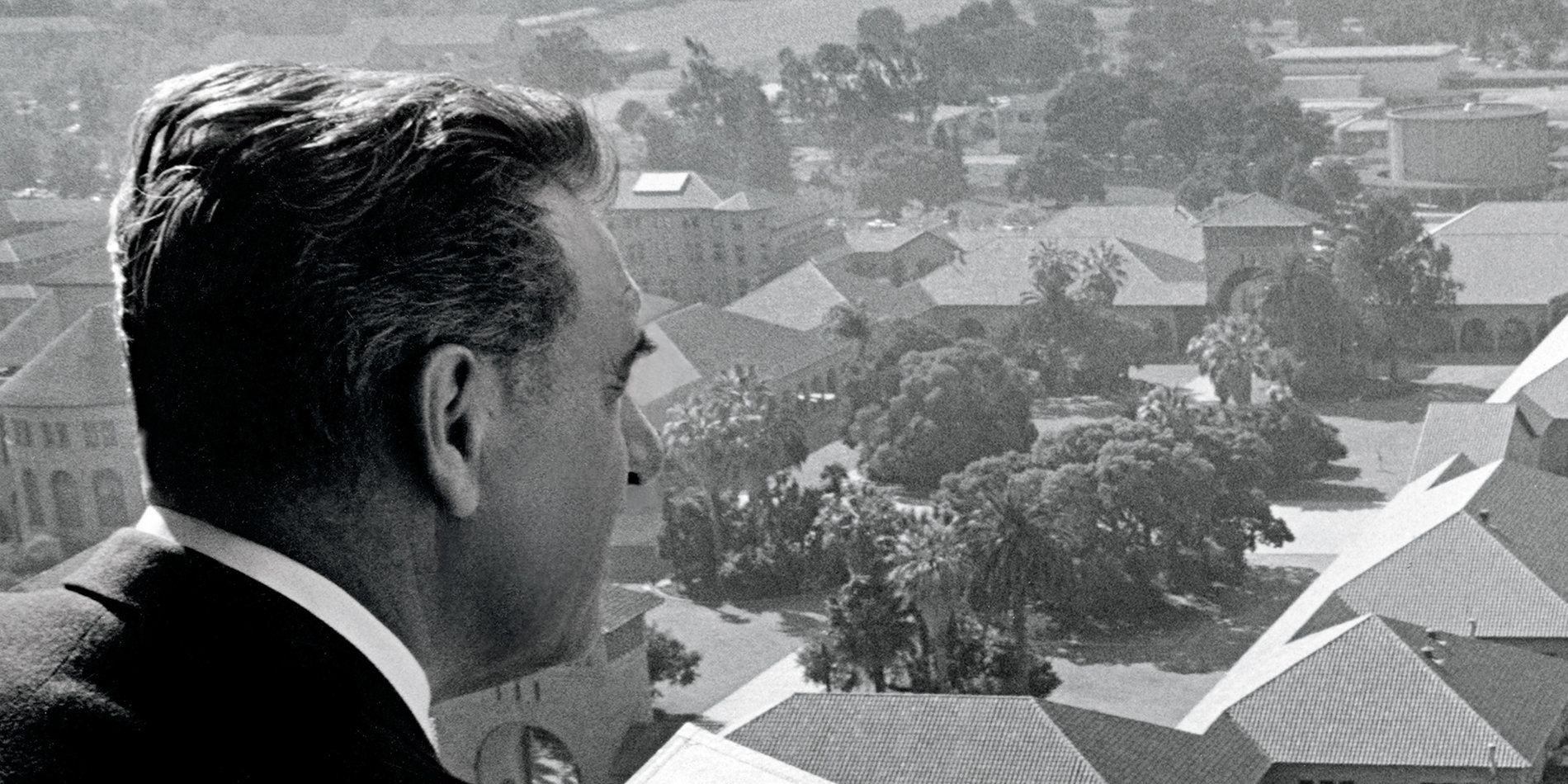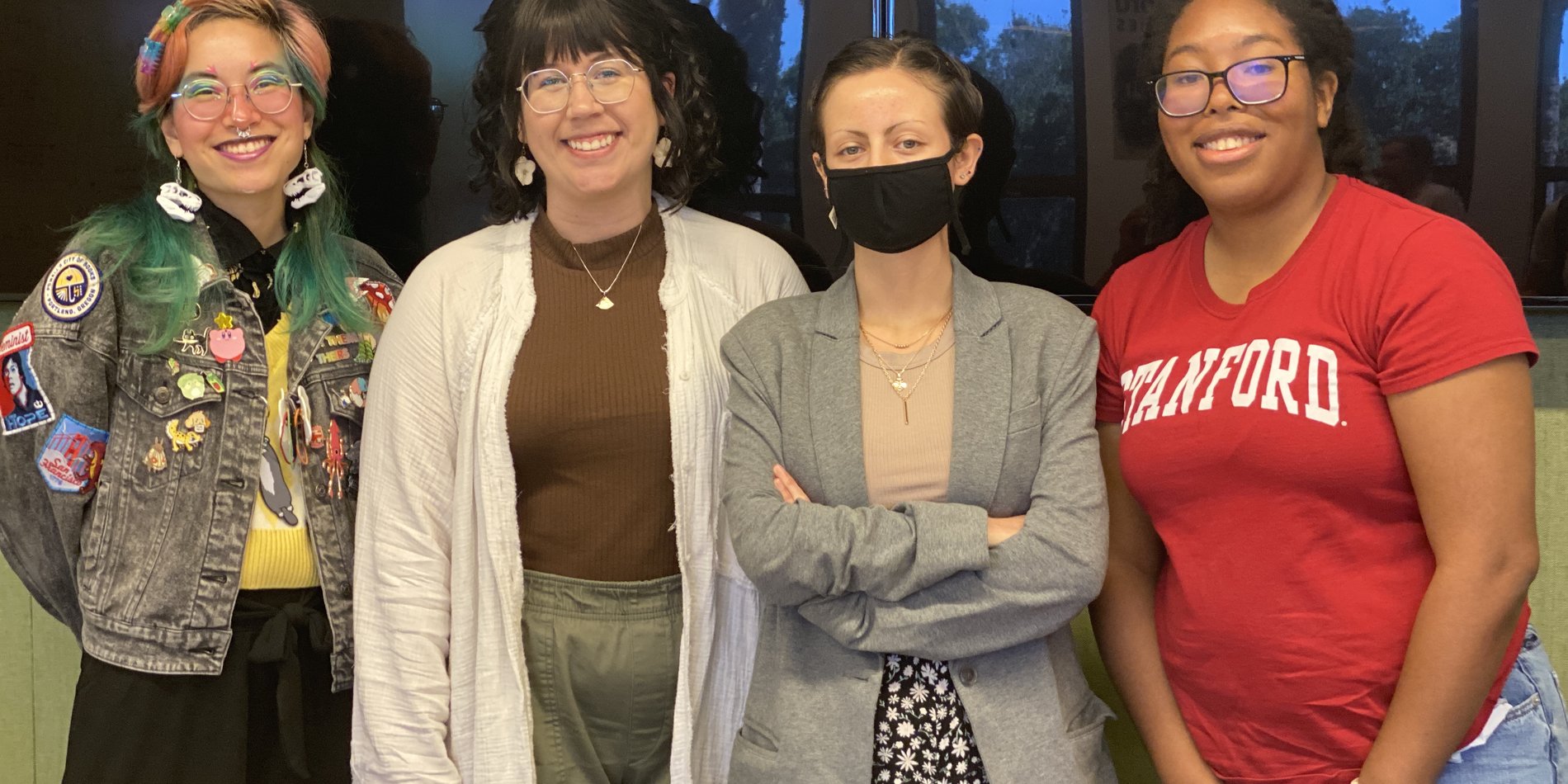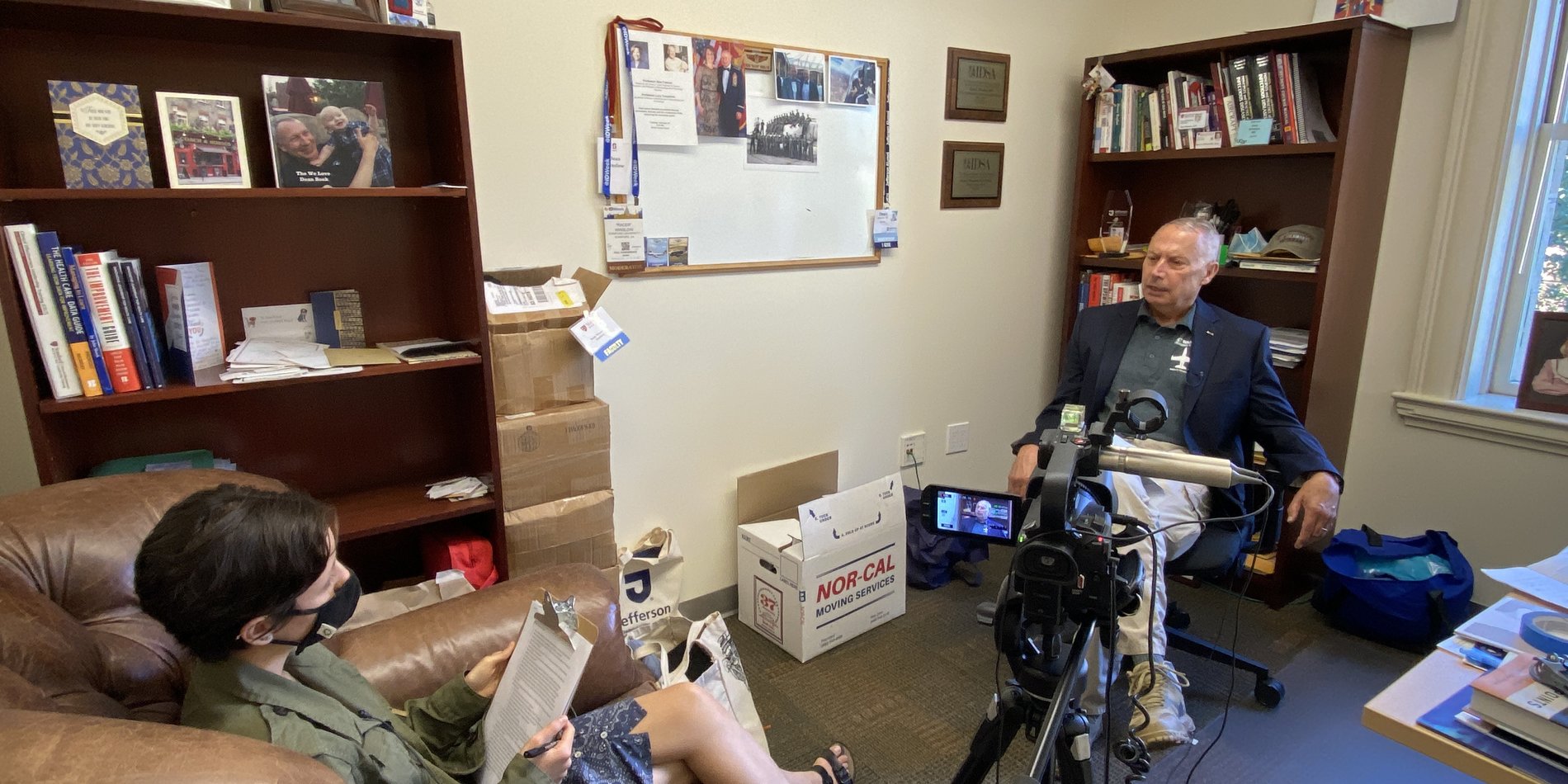Guest Blogger: Summer Intern Eli Waldman

Intern Eli Waldman.
As a freshman who didn’t get to experience any Stanford campus and community life this past year, I arrived on campus in June hoping to immerse myself in everything Stanford--past and present. My internship with the Stanford Historical Society Oral History Program certainly helped me accomplish this. Through my work on The Movement Oral History Project, a collection of interviews with Stanford students from 1963 to 1973, I learned about and experienced Stanford in ways few others have. The interviews centered around opposition to the Vietnam War, and the countless stories of student activism gave me great insight into campus life in the sixties: draft protests, sit-ins at the Applied Electronics Laboratory and other buildings involved in the war effort on campus, marches around the Main Quad, and boycotts of draft testing programs. Even at the expense of their academic futures, students at the time paved the way for future generations of activists. Their passion and energy were palpable and have not waned over the past fifty years.
One of my responsibilities was editing the video for the interviews in The Movement collection to prepare it for inclusion in the University Archives and posting on the Stanford Historical Society’s website. With such a diverse group of interviewees featured in The Movement project, I expected each interview to be completely different from the next. What was fascinating, however, was hearing the interviewees retell some of the same stories from different perspectives, like the sit-in at the Applied Electronics Laboratory. Learning about the different roles necessary for the AEL sit-in to be successful, from graduate student leaders galvanizing the undergraduates to professors hosting lectures inside AEL, proved how dedicated and united the students were. Using Adobe Premiere Pro editing software was a challenging but exciting new experience for me. As I edited each interview, I simultaneously created a video editing workflow document with helpful editing tips for future interns involved with video processing.
The Oral History Program Internship was also a great opportunity to hone my interviewing skills for Stanford’s archival purposes. I am grateful I was able to conduct in person interviews for the Stanford, COVID-19, and Crises of 2020-21 Oral History Project. Not surprisingly, the goal of this project was to gather student and staff perspectives on the events of 2020-2021 and document how they managed to get through this challenging time. After having spent a year in remote classes, I particularly enjoyed meeting and getting to know an eclectic mix of Stanford students and staff and hearing their experiences and interpretations of the past year. It was a privilege and an honor to interview a wide range of Stanford community members including Geophysics Professor Dusty Schroeder; synchronized swimming national champion, Emma Tchakmakjian; and the engagement editor for The Stanford Daily, Cameron Ehsan. Sitting down and spending hours talking to diverse members of the Stanford community gave me some fascinating new perspectives and insights on the events that unfolded in 2020-2021. I was inspired by their dedication and commitment to telling their full story, even if that meant bringing up difficult memories, in and out of the classroom, from a challenging year. Sharing uplifting, and also turbulent, experiences with interviewees is something that has really stuck with me and helped me as I begin to form new friendships in my first year on campus.
I will always appreciate and value the opportunity I had to work for the Stanford Historical Society. Given the past disjointed year, having the chance to interact with members of the Stanford Historical Society and the larger Stanford community was more meaningful than it might otherwise have been without the COVID-19 pandemic and its devastating effects on our collective community. Thanks to the team at the Stanford Historical Society Oral History Program, I was able to document and archive monumental parts of Stanford history during the Vietnam War Era and the COVID-19 pandemic without ever having been on campus prior to this summer. I’m forever grateful to have contributed to documenting these aspects of Stanford history, separated by over half a century.
Eli Waldman is a member of Stanford’s Class of 2024. He’s interested in film, history, and the intersection of the two. Originally from Arlington, Virginia, he enjoys intramural sports and exploring San Francisco. During the summer of 2021, he was an intern with the Stanford Historical Society Oral History Program.
Originally posted in Special Collections Unbound by Emma Frothingham.


